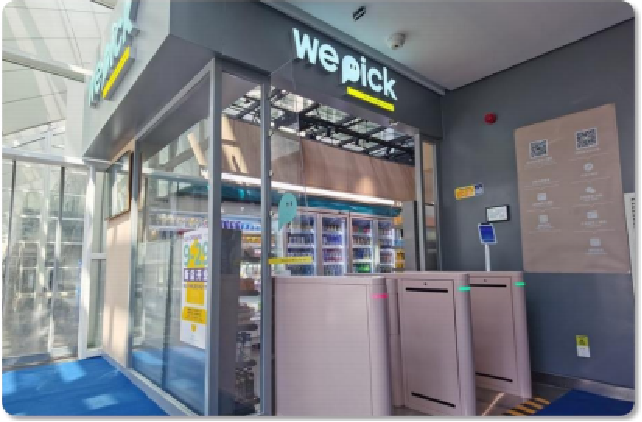What Makes a Premium Shopping Cart Manufacturer: Quality Standards, Innovation, and Sustainability

A premium shopping cart manufacturer stands out with unmatched attention to quality, innovation, and sustainability. Retailers in the luxury and premium market demand carts that offer advanced features, durability, and minimal environmental impact. The industry shows strong growth, with a projected CAGR of 22.34% and an expected market value of USD 6.22 billion by 2030.
Premium shopping carts now feature modular hardware, AI-driven recommendations, and recyclable materials—key sustainability factors for responsible businesses.
Aspect | Example Highlights |
|---|---|
Technology | Smart sensors, automatic checkout, hybrid barcode/RFID scanning |
Sustainability | Energy-efficient displays, recyclable components, resilient supply chains |
Premium Value | Modular upgrades, exclusive service offerings, strategic market positioning |
Key Takeaways
Premium shopping carts meet strict quality and safety standards through certifications like ISO, SGS, and ASTM.
Advanced features such as smart sensors, AI integration, and modular designs improve shopping convenience and store efficiency.
Durability and refurbishment programs ensure carts last longer, protecting retailers' investments and supporting sustainability.
Manufacturers use eco-friendly materials and ethical supply chains to reduce environmental impact and meet consumer demands.
Retailers should choose manufacturers with strong certifications, positive reviews, and clear sustainability commitments for long-term value.
Premium Shopping Cart Standards

Quality
Premium shopping cart manufacturers set themselves apart by meeting strict international standards. They follow ISO, SGS, and ASTM guidelines to ensure every product meets high expectations. These standards cover everything from material selection to final inspection. For example, JY Shopfittings holds ISO and SGS certifications, while Versacart Systems complies with ASTM F2372-04. Carts Royale has earned ISO 9001 certification, and EcoCarts Canada follows ISO 14020 Series and FSC standards for environmental claims.
Manufacturer | Certifications and Standards | Quality Testing Methods |
|---|---|---|
JY Shopfittings | ISO/SGS certification | Compliance with ISO/SGS regulations |
Versacart Systems | ASTM F2372-04 compliance | Safety audits, facility testing |
Carts Royale | ISO 9001 certification | ASTM standards testing, UV testing |
EcoCarts Canada | ISO 14020 Series, FSC certification | Environmental claim verification, durability testing |
Manufacturers use high-quality recycled plastics and metals to create each premium shopping cart. Remanufacturing plays a key role in reducing waste and supporting a circular economy. These practices help retailers offer a high-quality product that meets both performance and environmental goals.
Premium pricing reflects the value and exclusivity of these carts. Retailers invest in them for long-term reliability and a better customer experience.
Durability
A premium shopping cart must withstand daily use in busy retail environments. Manufacturers test each product for thermal shock resistance, UV exposure durability, mechanical shock response, and vibration tolerance. For example, Northern Cart Solutions uses these tests to ensure every cart lasts for years. Cart Supreme performs salt spray and anti-UV assessments to protect against rust and sun damage.
Manufacturers also offer refurbishment programs. Technibilt (Wanzl NA) restores used carts to near-new condition, extending the product lifecycle. This approach supports sustainability and reduces the need for new materials.
Retailers can trust that a premium shopping cart will remain sturdy and reliable, even with heavy use. This durability protects their investment and keeps customers satisfied.
Safety
Safety stands as a top priority for every premium shopping cart manufacturer. They conduct regular facility audits, systematic testing, and professional maintenance inspections. Versacart Systems, for example, provides a one-year manufacturing warranty and professional maintenance programs. CBSF follows electrical certification requirements and safety compliance audits.
Manufacturers track customer satisfaction using metrics like CSAT and Net Promoter Score. Northern Cart Solutions maintains a minimum 80% positive CSAT score and measures problem resolution efficiency. These quality control measures ensure each product meets strict safety standards before reaching the sales floor.
Retailers benefit from these safety practices by reducing liability and building trust with shoppers. A premium shopping cart not only looks good but also keeps users safe during every trip.
Innovation
Advanced Features
Premium shopping cart manufacturers lead the market by integrating advanced features that transform the shopping experience. The industry has seen steady growth, with a global market size of USD 3.5 billion in 2023 and a projected USD 5.2 billion by 2033. The table below highlights key innovation trends and market drivers:
Aspect | Details |
|---|---|
Global Market Size 2023 | USD 3.5 billion |
Projected Market Size 2033 | USD 5.2 billion |
CAGR (2025-2033) | 4.2% |
Key Innovation Trends | Electric carts, foldable carts, AI-integrated carts, IoT connectivity, eco-friendly innovations |
Market Drivers | Retail expansion, online shopping growth, technological advancements |
Sustainability Trends | Eco-friendly carts, solar-powered components |
Manufacturers now offer modular hardware with LCD or LED touchscreens, camera modules, barcode and RFID scanners, and weight sensors. These features help retailers deliver a seamless product experience and support eco-friendly goals. Built-in self-checkout and IoT connectivity allow stores to optimize layouts and collect real-time data.
Smart Technology
Smart technology has changed how shoppers interact with every product. Companies like Cust2Mate and Caper.ai use AI-powered instant item recognition, synced shopping lists, and integrated payment systems. These solutions eliminate checkout lines and provide digital receipts, making the experience faster and more convenient. Oracle Commerce AI shopping cart solutions have shown a 250% increase in conversion rates and a 10% rise in average order value. Shoppers benefit from real-time recommendations, loyalty programs, and dynamic pricing, which enhance engagement and satisfaction. Retailers also gain from improved inventory management and reduced shrinkage.
Smart carts improve operational efficiency and create a personalized experience for every customer.
Modular Design
Modular design allows retailers to customize each product for their unique needs. Manufacturers offer carts with interchangeable components, ergonomic handles, and solar panels for powering displays or sensors. This flexibility supports eco-friendly practices by enabling easy upgrades and repairs, reducing waste, and extending the product lifecycle. Modular carts adapt to new technologies and changing consumer demands, ensuring a future-ready experience.
Retailers who invest in these innovations deliver a superior product and a memorable experience, while also supporting eco-friendly initiatives.
Sustainability Practices

Eco-Friendly Materials
Premium shopping cart manufacturers focus on eco-friendly materials to reduce environmental impact. They use recycled plastics and metals in their carts, which helps conserve resources and lower waste. Many companies now design sustainable products with recyclable parts, making it easier for retailers to support sustainable shopping. Eco-friendly materials also allow for remanufacturing, which extends the life of each cart and reduces the need for new raw materials. Some brands use environmentally friendly packaging and sustainable packaging to further limit their environmental footprint. These eco-friendly choices show a strong commitment to sustainability and environmental responsibility.
Eco-friendly materials help retailers meet the demands of the eco-friendly consumer and support eco-consumerism in the retail industry.
Resource Efficiency
Manufacturers improve resource efficiency by adopting lean production methods. They use small batch deliveries, quick machine setups, and systematic production schedules to reduce waste and downtime. Workers check quality at the source, stopping production if they find defects. Regular maintenance keeps machines running smoothly. Companies work closely with a few trusted suppliers who deliver materials just in time. These sustainable practices help lower costs and improve flexibility.
Operational Practice | Description |
|---|---|
Small batch deliveries | Receiving materials in small, regular batches to reduce inventory waste and improve flow. |
Quick machine setups | Reducing machine setup times by empowering production workers to perform setups themselves. |
Systematic production | Producing multiple product models daily based on accurate forecasting to reduce variability. |
Quality at source | Empowering workers to detect and halt production for quality issues early, minimizing defects. |
Total productive maintenance | Maintaining machines in high readiness through routine inspections and maintenance records. |
Supplier relationships | Collaborating closely with a few high-performance suppliers using just-in-time delivery methods. |
Operational performance | Measuring cost, delivery, overtime, and flexibility as key indicators of manufacturing efficiency. |
These eco-friendly production methods support the creation of sustainable products and help reduce environmental impact.
Supply Chain Ethics
Ethical supply chains play a key role in sustainability. Manufacturers choose partners who follow fair labor practices and maintain transparency. They require suppliers to use eco-friendly materials and sustainable packaging. Many companies now publish sustainability messaging to show their commitment to ethical sourcing and environmental impact reduction. Eco-consumerism and changing consumer behaviors push brands to make sustainable choices at every step. Retailers and manufacturers work together to create sustainable products that protect the environment and meet the needs of the eco-friendly consumer.
The rise of eco-friendly trends and sustainability factors shapes how companies design, produce, and deliver shopping carts.
Choosing a Manufacturer
Certifications
Retailers should always check for certifications when selecting a premium shopping cart manufacturer. Certifications like ISO, SGS, and ASTM show that a company meets strict quality and safety standards. These trust signals help buyers feel confident in the product. A manufacturer with these credentials often displays them on the product detail page or in the detailed product description. This transparency builds trust and shows a commitment to high standards. Customer reviews often mention certifications as a reason for choosing a product, which further supports trust in the brand.
Track Record
A strong track record gives retailers more reasons to trust a manufacturer. Companies with years of experience in the industry often have many positive reviews and high customer satisfaction scores. Retailers should look for manufacturers who share customer reviews and case studies. These reviews highlight real-world product performance and the overall experience. A manufacturer with a proven history of delivering quality products and excellent service stands out. Trust grows when buyers see consistent results and positive feedback from other businesses.
Tip: Always read customer reviews and look for detailed product descriptions to understand how the product performs in real stores.
Sustainability Commitment
Sustainability now plays a key role in choosing a manufacturer. Retailers should review a company's sustainability initiatives and benchmarks. The table below shows important KPIs that measure a manufacturer's eco-friendly practices:
KPI Metric | Benchmark/Target | Description/Use Case |
|---|---|---|
Carbon Footprint Per Product | Below 10 kg CO2 per product | Shows commitment to reducing emissions for each product. |
Supplier Compliance Rate | Above 80% | Ensures suppliers follow ethical and sustainable standards. |
Inventory Turnover Rate | 4 to 6 times per year | Reflects efficient inventory management and less waste. |
Customer Retention Rate | Over 60% | Indicates loyalty among customers who value sustainability. |
Manufacturers often run recycling programs, use eco-friendly materials, and offer reusable products. They may also provide digital receipts and label sustainability features on the product detail page. These actions show a real commitment to sustainability and help build trust with eco-conscious shoppers. Retailers should choose partners who share their values and support a positive experience for every customer.
Premium shopping cart manufacturers lead with quality, innovation, and sustainability. These pillars drive trust and long-term value. Decision-makers should look for clear certifications, strong reviews, and visible green benefits.
Green perceived quality and benefits shape consumer trust and willingness to pay more.
Premium pricing works best when backed by ethical sourcing and high standards.
Future-focused sustainability messaging and positive reviews help guide smart choices.
Companies that combine these factors set new standards for the industry and support a greener future.
FAQ
What certifications should a premium shopping cart manufacturer have?
Premium manufacturers often hold ISO, SGS, or ASTM certifications. These show that the company meets strict quality and safety standards. Retailers can check for these certifications on the manufacturer’s website or product details.
How do smart shopping carts improve the customer experience?
Smart carts use sensors, cameras, and digital screens. These features help shoppers find products, check out faster, and receive personalized offers. Retailers also gain real-time data to improve store operations.
Why is sustainability important in shopping cart manufacturing?
Sustainability reduces waste and saves resources. Manufacturers use recycled materials and energy-efficient processes. Retailers who choose sustainable carts support the environment and meet the expectations of eco-conscious shoppers.
How can retailers verify a manufacturer’s track record?
Retailers can review customer testimonials, case studies, and third-party ratings. Many manufacturers share these on their websites. A strong track record shows reliability and consistent product quality.
What advanced features do premium shopping carts offer?
Premium carts may include modular parts, ergonomic handles, solar panels, and self-checkout systems. These features increase convenience, safety, and efficiency for both shoppers and store staff.
See Also
Exploring Vending Machines’ Advantages And Contemporary Innovations
Creative Places To Install Vending Machines Outside Norms
The Impact Of AI Tools On Managing Online Stores
Modern Home Vending Machines Offering Unique Features And Benefits
Starbucks Serenade Brings Premium Coffee To Workplaces Everywhere
